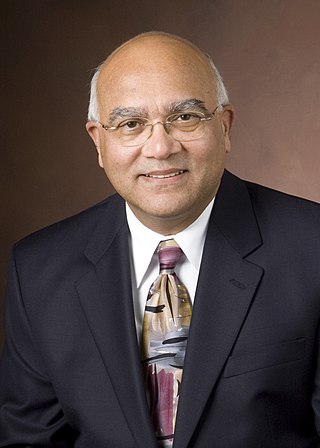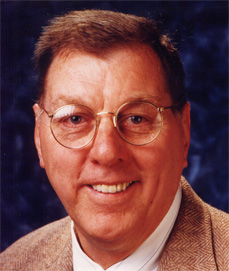Green chemistry, similar to sustainable chemistry or circular chemistry, is an area of chemistry and chemical engineering focused on the design of products and processes that minimize or eliminate the use and generation of hazardous substances. While environmental chemistry focuses on the effects of polluting chemicals on nature, green chemistry focuses on the environmental impact of chemistry, including lowering consumption of nonrenewable resources and technological approaches for preventing pollution.
The American Institute of Chemical Engineers (AIChE) is a professional organization for chemical engineers. AIChE was actually established in 1908 to distinguish chemical engineers as a profession independent of chemists and mechanical engineers.

The Institution of Chemical Engineers (IChemE) is a global professional engineering institution with over 33,000 members worldwide. It was founded in 1922 and awarded a Royal Charter in 1957.

Benson Hall is a building in the University of Washington campus. It is home to the chemical engineering department. The building was named after Henry K. Benson, a faculty member from 1904 to 1954. During this time, he held the position of Chair of Chemistry and Chemical Engineering. Leonard William Bindon and John LeBaron Wright designed Benson Hall.

Willis Harmon Ray is an American chemical engineer, control theorist, applied mathematician, and a Vilas Research emeritus professor at the University of Wisconsin–Madison notable for being the 2000 winner of the prestigious Richard E. Bellman Control Heritage Award and the 2019 winner of the Neal Amundson Award.

Mark Holtzapple is a chemical engineering professor at Texas A&M University. His research focuses on technologies that improve sustainability.
Edward L. Cussler is an American chemical engineer and Professor in the Department of Chemical Engineering and Materials Science at the University of Minnesota. He is internationally known for his work in fluid mechanics, transport phenomena, and gas separations, especially in the areas of membranes and gas sorption. Cussler is an author of more than 250 academic papers, dozens of patents, and five books including the acclaimed text: “Diffusion”. He has served as Director, Vice President and President of the American Institute of Chemical Engineers, and he presented the AIChE Institute Lecture in 2014. Cussler and his wife Betsy, a former teacher at Edina High School, are long-time residents of Minneapolis, Minnesota.
Dame Lynn Faith Gladden is the Shell Professor of Chemical Engineering at the University of Cambridge. She served as Pro-vice-chancellor for research from 2010 to 2016.

Arvind Varma was the R. Games Slayter Distinguished Professor, School of Chemical Engineering at Purdue University. His research interests are in chemical and catalytic reaction engineering, and new energy sources.
Professor Bodo Linnhoff is a chemical engineer and academic who developed Pinch Analysis, a methodology for minimising energy usage in the process industries. In its early days, the technique helped companies such as ICI and BASF to design plants that used roughly 30% less energy. As of the 1990s, Pinch Analysis became industrial standard in the oil refining and petrochemical industries. In 2010, Linnhoff founded a finance company, Harvester International, which nurtures innovation and guides smaller companies, such as Inview Technology.
James Rutherford Fair was an American chemical engineer. His professional career included 33 years working in a variety of industrial positions, primarily for Monsanto Company.

The IRI Medal, established by the Industrial Research Institute (IRI) in 1946, recognizes and honors leaders of technology for their outstanding accomplishments in technological innovation which contribute broadly to the development of industry and to the benefit of society. One side of the medal depicts a scientist peering into a microscope as a symbol of the never-ending quest for innovation; a pegasus running in the background as a symbol of imagination; and clouds issuing from a retort revealing the practical results of humanity's ability to harness natural forces to meet its needs. The reverse side of the medal is an adaptation of the official seal of the Institute. This award is traditionally presented each spring at the IRI Annual Meeting alongside the IRI Achievement Award.

John A. Quinn, Ph.D. was the Robert D. Bent Professor Emeritus of Chemical and Biomolecular Engineering at the University of Pennsylvania School of Engineering and Applied Science. He was a leader in the fields of mass transfer and membrane transport in synthetic membranes since the 1960s. In the early phase of his career at the University of Illinois, Quinn and his students devised simple, elegant experiments to elucidate the role of the interface in mass transfer between phases. In later work at Penn, he applied these insights to problems of engineering and biological significance involving chemical reaction and diffusion within and through both finely porous and reactive membranes. His chemical engineering science has informed matters as far afield as the separation of chiral pharmaceuticals and the behavior of cells at interfaces.
William F. Banholzer is an American Professor of Chemical and Biological Engineering at the University of Wisconsin-Madison. Prior to this role, he was formally a chemical engineer and Executive Vice President and Chief Technology Officer at the Dow Chemical Company. He is most known for his leadership of industrial R&D organizations at both Dow Chemical Company and General Electric. He is also known for the discovery of methods related to production of synthetic diamond. In particular, the synthesis methods he developed allowed the production of isotopically pure diamonds.

Polly Louise Arnold is director of the chemical sciences division at Lawrence Berkeley National Laboratory and professor of chemistry at the University of California, Berkeley. She previously held the Crum Brown chair in the School of Chemistry, University of Edinburgh from 2007 to 2019 and an Engineering and Physical Sciences Research Council (EPSRC) career fellowship.
Thomas Flynn Edgar is an American chemical engineer.
Rosemarie Wesson is the Associate Dean of Research at City College of New York. She was the first African-American woman to receive a PhD in chemical engineering from the University of Michigan. She has worked at the National Science Foundation, Louisiana State University and Dow Chemical Company.
C. Judson King is an American chemical engineer, researcher, administrator and educator. He is professor emeritus at University of California, Berkeley, and UC universitywide provost and senior vice president of academic affairs, emeritus, at University of California. He is the former director of Center for Studies in Higher Education and the former dean of College of Chemistry at UC Berkeley.
Christine Sharon Grant is an American chemical engineer who is the Associate Dean of Faculty Advancement at North Carolina State University. Her research considers surface and environmental science. She is the 2022 President of the American Institute of Chemical Engineers.







